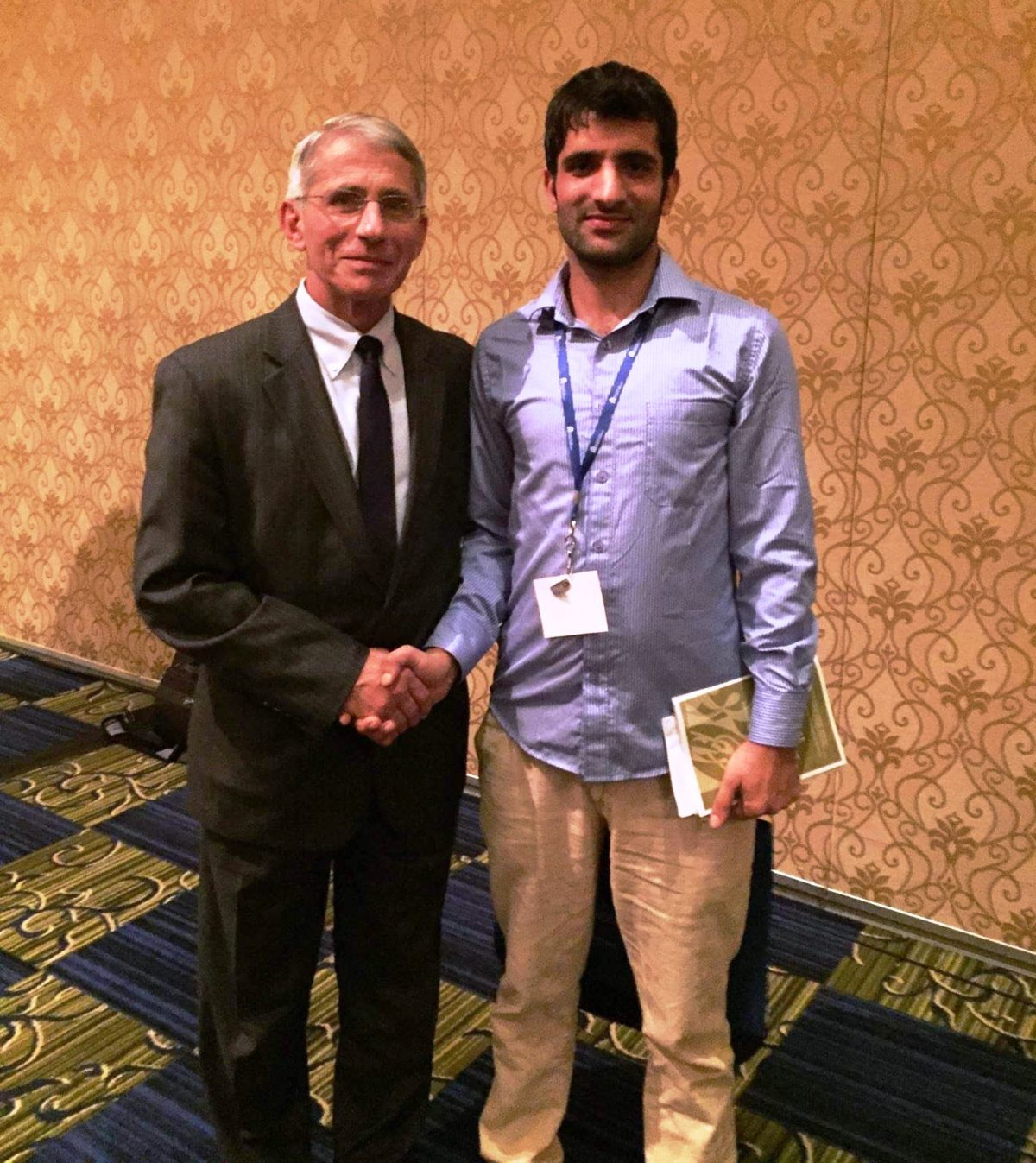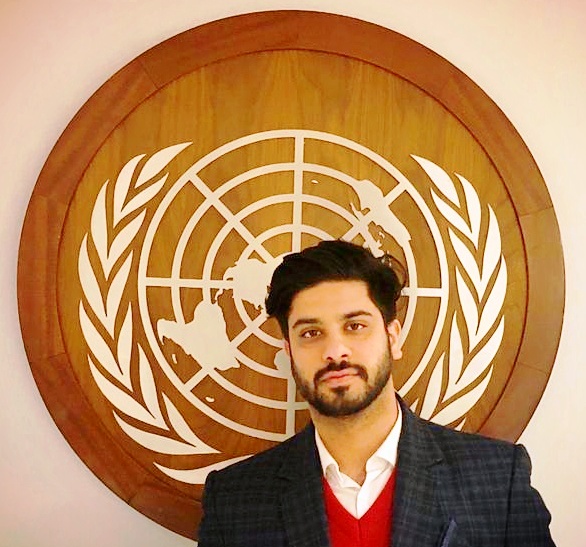SRINAGAR: Two researchers Ryan Sutherland and Javaid Iqbal, jointly interviewed Dr Antnony Fauci for the Harvard Public Health Review. Dr Fauci is an authority on contagious diseases and is the man behind the US administration battle against the Covid19 pandemic. The transcript of the virtual interview is being reproduced here:

Ryan Sutherland: It is such an incredible honour to meet you and interview you for the Harvard Public Health Review (HPHR). I am Ryan Sutherland.
Javaid Iqbal: I am Javaid Iqbal.
Ryan Sutherland: I think it is fair to say that many public health students myself included and Javaid look up to you and admire the way you have navigated the country through the pandemic letting evidence guide you despite frictional moments with those who do not share your views your leadership has been an inspiration to all of us at HPHR and to many across the country again. It is an absolute honour to have you and welcome you.
Javaid Iqbal: Dr Fauci given how the delta variant is causing another surge in cases across the country and globally what role can public health students play to improve Covid19 vaccine adoption?
Dr Anthony Fauci: You know that is a great question Javaid. I think it is one of them, I am sure, there are many things but one of the things that stands out in my mind is that in all of the experience that I have had now over four decades from the very first early days of HIV was the realization that sometimes there is a little bit disinformation and you can correct it. And then there becomes almost disinformation and the one thing that I am seeing now, very painfully, is that the disinformation and misinformation, which has the new platform of social media can be thoroughly destructive to what you are trying to do with public health in our country and in global health throughout the world.
So, what I hope and I am glad that is one of the reasons why I was excited about being with you guys to talk to people like yourselves and people at their different stages is the best way to counter disinformation is by flooding the system with people who are deeply involved with the truth and who have one goal, which is what people in public health have to preserve and protect the health and the safety of the people of the world. That is what public health is about and what we need is people like yourselves to be unafraid to speak out even when you have people who are countering you with complete misinformation.
You know it was much easier early on when there were difficulties in understanding things that we did not fully understand about HIV. Then, most people who really wanted to know what the right answer was, what the truth is. We are dealing now with people in which truth is completely irrelevant and that is really a problem. So I think the future of people like you all and like me if whatever future I still have left in my ageing years is going to be to try against obstacles that we never had a face before. I mean there was always a little bit of a fringe of lack of reality, lack of truth, lack of proper communication but now it is like they are out there in full bloom.
So we need people who are wedded to public health at its highest level of integrity and that is what the young people now who are studying public health are so important. You cannot imagine how important you are? It is like you know we are at this war. It is now a war of microbe’s, things that I have predicted for decades.
People have always asked me what my worst nightmare is? I never thought that I would actually wind up living through my worst nightmare, which was an outbreak of a highly transmissible disease, an infectious disease that has the capability of killing a lot of people. But that is why we are there. So you guys are the soldiers in the army because it really is a war; it is a war of not only the microbes but a war of disinformation.
Javaid Iqbal: It indeed is, the surgeon general recently highlighted how misinformation is a crucial public health challenge, how do we address this challenge while communicating the importance of public health measures such as masking
Dr Anthony Fauci: What we need to get people to understand- and this is really critical I am not so sure well, I guess we say we have not done a very good job of it. But I am not so sure that it was through any deliberate fault of our own. When you are dealing with the evolution and that is why public health particularly in the arena of infectious diseases, I am fully aware that public health goes well beyond infectious diseases but when you are dealing with an outbreak there is a certain dynamic nature of it that unfolds in front of you and you never really know where it is going until it gets there.
You know when we were first getting information early on, one had to make recommendations they looked to public health people what should we do
That is based on the information that we have now. If information is static and you change what you say then you could say you are flip-flopping. But if information rapidly changes and you move with it and make your recommendations and analyze it that is confusing to the general public who do not spend as much time as you and I and all of your colleagues do.
They think wait a minute you told us this one day now you are telling this another day that is because you are dealing with the evolution of a previously un-experienced outbreak. We have never experienced anything like this in 102 years since 1918.
So particularly when you are dealing with a situation where the initial information that was coming out from China was what the Chinese generally do – they just hold back information, that does not mean anything leaked from a lab or that they created it. It happened with SARS, it was kind of like – oh it is just another influenza because they did not like the idea that some new disease was coming out of Guangdong province. When it got to Hong Kong, did we realize that we were dealing with a brand new disease?
So there are so many factors in now that are problematic but we cannot shrink from it – I mean to shrink from it that is our destiny that was. What we chose we chose, a field that is very complicated, that has dynamic aspects to it, that is easily prone to misinformation. A general public who you would not
expect to understand all the intricacies of what we do, so to me, that is part highly challenging but part you know. You know of what we do nobody said it would be easy if anybody wants to have to do something easy you are in the wrong field. If you are in public health, it is extremely gratifying because when you do something that has an impact you can save literally millions of lives. But you have the responsibility of getting it right and getting a moving target right is tough.
Ryan Sutherland: In this unusual year we have all found inspiration in your unwavering determination and you know in your recent address to the MPH class of 2021 at the Yale School of Public Health you told graduates the challenges brought by the Covid19 pandemic at home and abroad have brought into sharp focus the world’s needs for science and art of public health professionals. So do you have any further advice for students who are looking to pursue public health as a career?
Dr Anthony Fauci: Go with your passion not everyone should be going into public health that would be impossible. It is not that you downplay other decisions in the life of what people have. But if you have even the slightest propensity and inclination that this is what you want to do, I can guarantee you that as tough as things might be along the line, it is an amazing profession. It just is the gratification that I have gotten there the energy that I have gotten over the years to pursue it to know that. Even though you might be working underneath the radar screen and nobody knows what you are doing, you are having an impact.

I mean everybody looks at me now because I am very much of a public figure for better or worse. You know half the people hate me and half the people love me. It is not a strange situation. I would have never have predicted that when I was going through what I was doing in the early years of HIV when we were to get this thing on the map to get the right response to it. Sometimes in a very lonely way that is okay, do not worry about that. You do not need to be visibly known by everybody. It is the gratification that you get out of that.
What all of you, who are in this field should focus on, is what do we do for others. Do we leave the world a better place when we leave? That is what counts and that is what is in my mind.
(Javaid Iqbal is a Kashmiri and an Economist who currently is a Fellow at Harvard Public Health Review and Global Fellow at Brandies University. Ryan Sutherland is a Fellow at Harvard Public Health Review and is currently pursuing his MPhil from Cambridge University)















